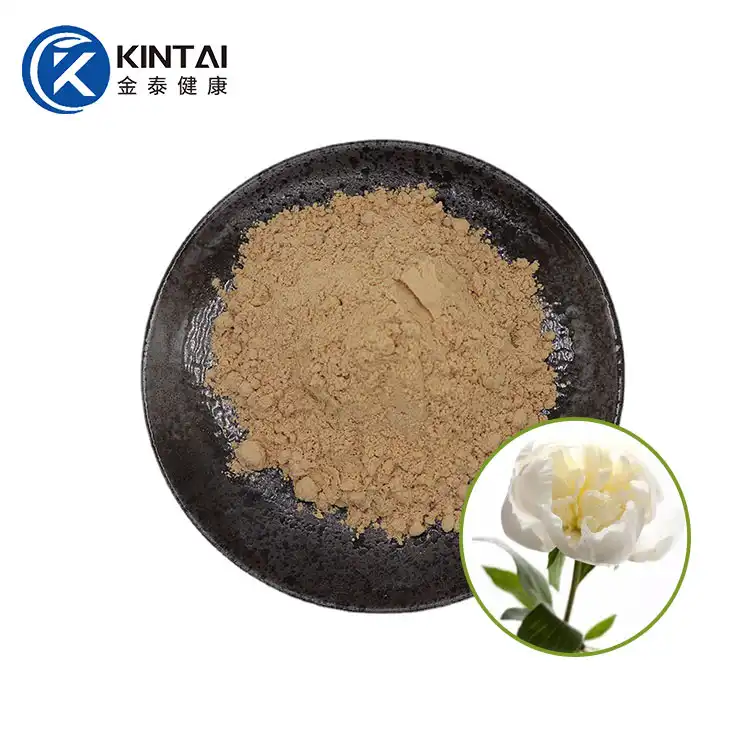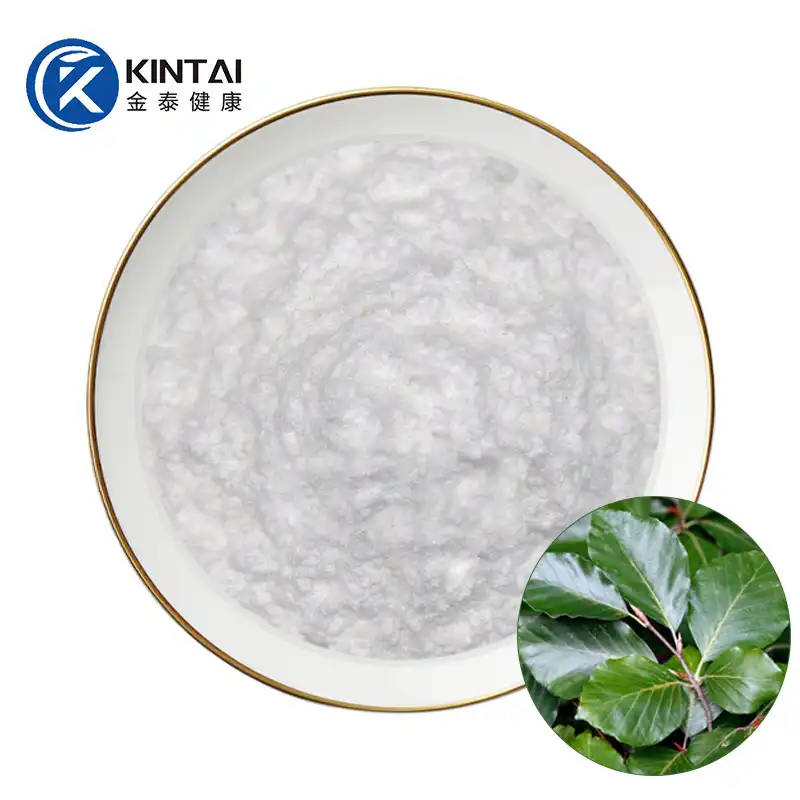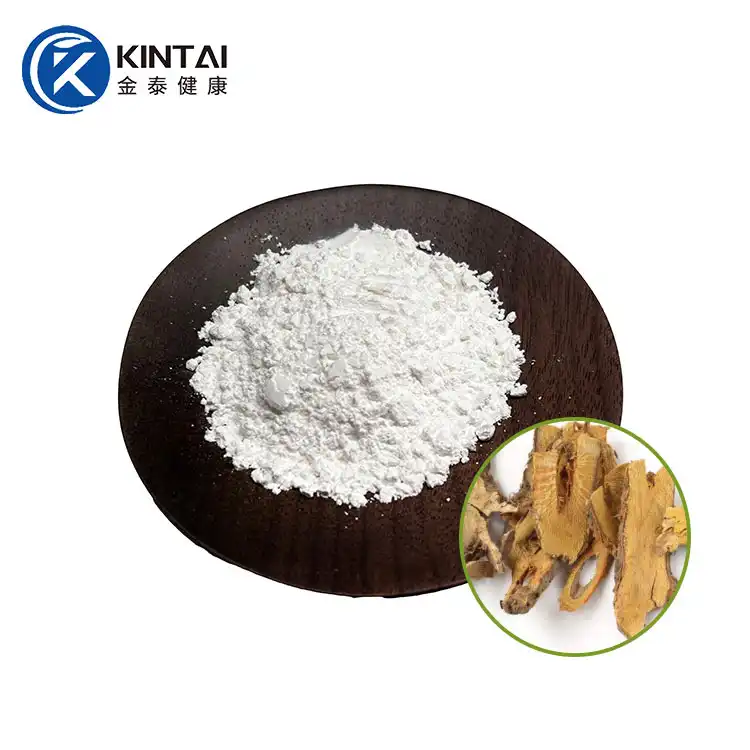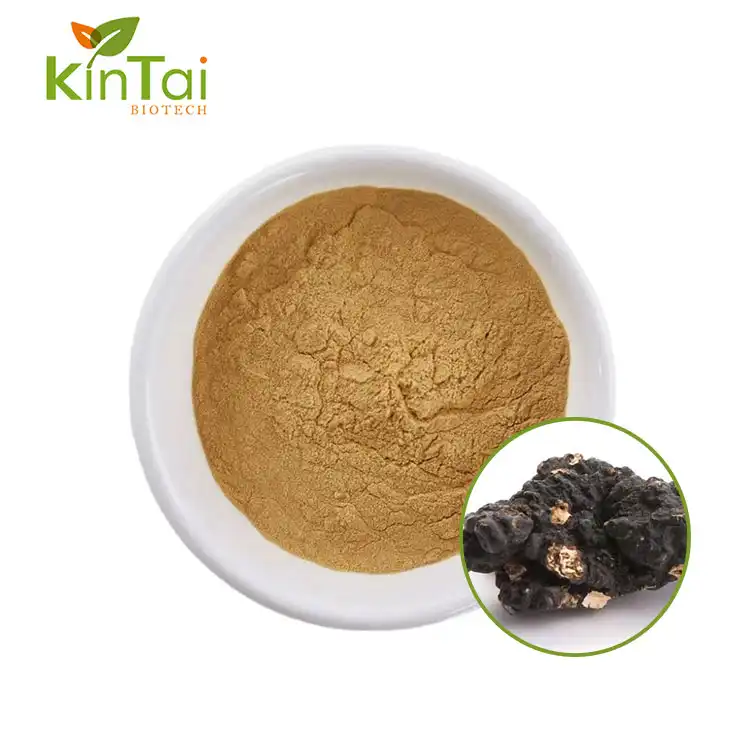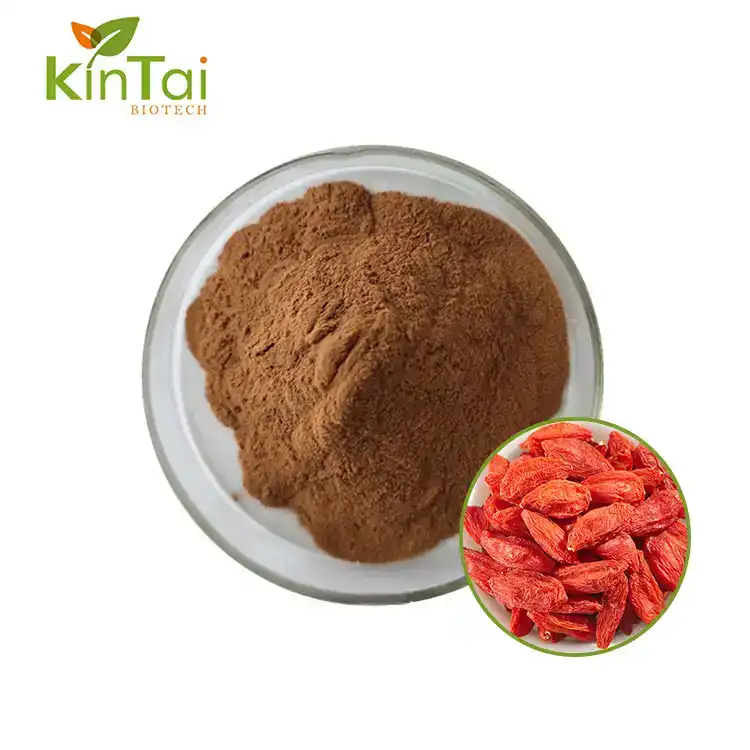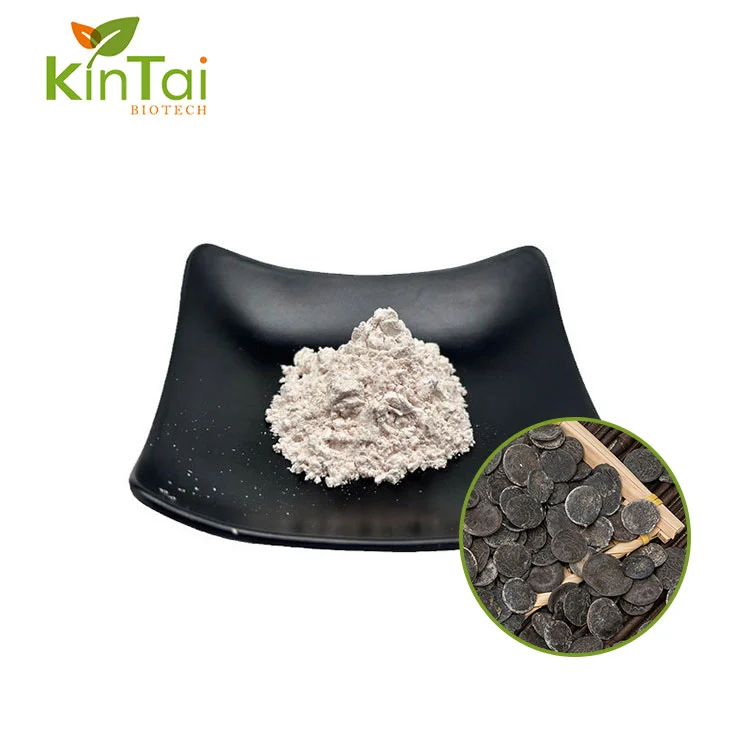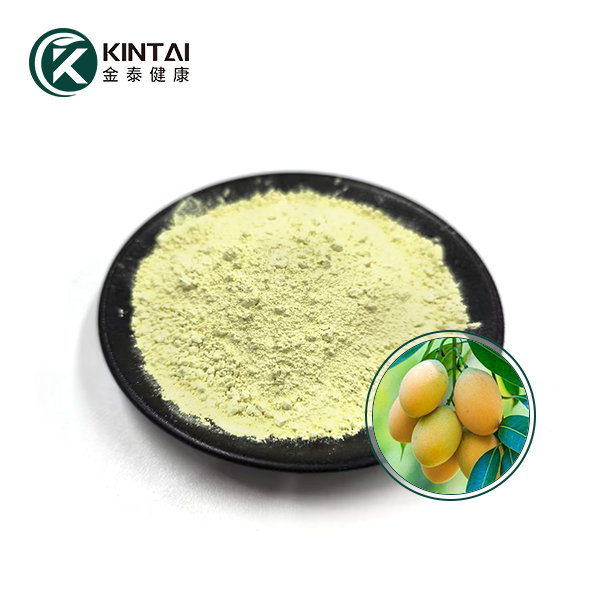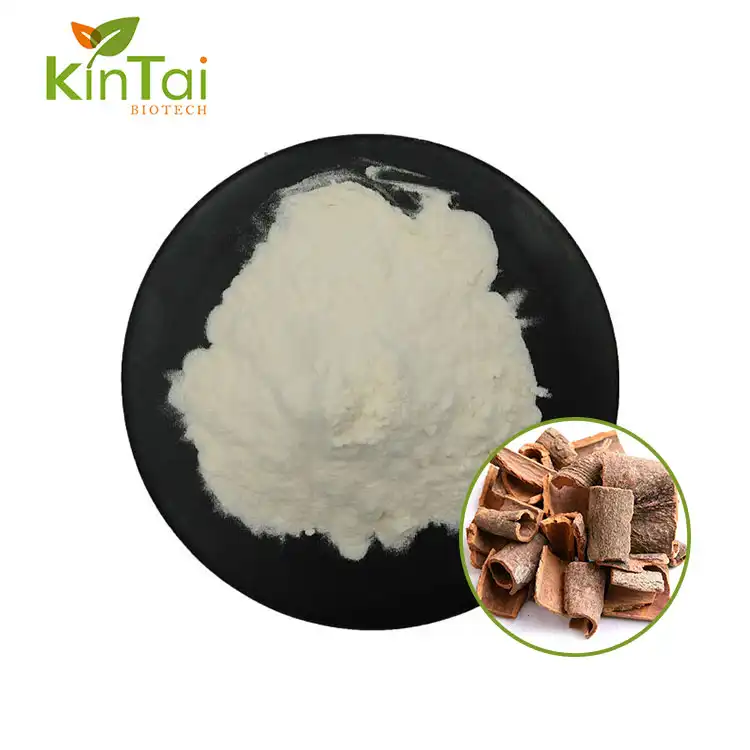Does Berberine Hydrochloride Powder Help You Lose Weight?
2024-11-27 10:00:22
Berberine hydrochloride powder has emerged as a promising natural supplement in the weight management landscape. This bioactive compound, extracted from various plants including Berberis vulgaris and Coptis chinensis, has garnered significant attention for its potential metabolic benefits. Traditional Chinese and Ayurvedic medicine have utilized berberine-containing plants for centuries, but modern research has begun to uncover its specific mechanisms in supporting weight loss and metabolic health. As obesity continues to be a global health concern, many individuals are turning to natural alternatives like berberine hydrochloride powder as part of their weight management strategy.

How Does Berberine Affect Blood Sugar and Weight Loss?
The relationship between blood sugar management and weight loss is intricate, and berberine hydrochloride powder appears to play a significant role in both aspects. Research suggests that berberine activates an enzyme called AMP-activated protein kinase (AMPK), often referred to as a metabolic master switch. This activation triggers various cellular processes that promote glucose uptake and improve insulin sensitivity. By enhancing insulin function, berberine helps regulate blood sugar levels, which can directly impact weight management efforts.
Studies have shown that berberine's blood sugar-regulating properties may be comparable to some conventional medications. When blood sugar levels are better controlled, individuals often experience reduced cravings and more stable energy levels throughout the day. This stability can lead to naturally lower caloric intake and better eating habits. Furthermore, berberine appears to influence the expression of genes involved in energy metabolism, potentially increasing the body's ability to burn fat for fuel.
The compound also shows promise in reducing lipogenesis (fat formation) in the liver and promoting the browning of white adipose tissue, which can increase energy expenditure. This multi-faceted approach to metabolic regulation makes berberine particularly interesting for those struggling with weight loss resistance related to blood sugar imbalances.

What is the Best Time to Take Berberine for Weight Loss?
The timing of berberine supplementation can significantly impact its effectiveness for weight loss. Based on clinical studies and practical experience, the optimal approach involves taking berberine hydrochloride powder multiple times throughout the day, rather than as a single dose. This strategy helps maintain steady levels of the compound in the bloodstream, maximizing its metabolic benefits.
Most research suggests taking berberine with meals, typically 15-30 minutes before eating. This timing allows the compound to influence glucose metabolism during digestion effectively. The standard protocol often involves dividing the daily dose into three portions, taken before breakfast, lunch, and dinner. This approach not only helps with blood sugar management but also may enhance the supplement's weight loss properties by optimizing nutrient partitioning during meals.
The rationale behind this timing strategy relates to berberine's relatively short half-life in the body, approximately 4 hours. By spacing doses throughout the day, you can maintain more consistent blood levels of the compound, potentially leading to better results. Some studies have also indicated that taking berberine before meals may help reduce food intake by influencing satiety signals and glucose metabolism.
Additionally, consistency in timing appears to be crucial for achieving optimal results. Regular, well-timed supplementation allows the body to adapt and respond more effectively to berberine's metabolic effects. Some users report better results when starting with a lower dose and gradually increasing it over time, allowing their digestive system to adjust and minimize any potential gastrointestinal discomfort.
Can Berberine Replace Metformin for Weight Loss?
The comparison between berberine hydrochloride powder and metformin has become increasingly relevant as more research emerges about their similar mechanisms of action. While both compounds influence glucose metabolism and support weight loss, it's essential to understand their unique characteristics and applications. Berberine has demonstrated comparable effects to metformin in several studies, particularly regarding blood sugar regulation and weight management.
Research indicates that berberine's ability to activate AMPK mirrors one of metformin's primary mechanisms of action. This similarity has led to increased interest in berberine as a natural alternative, particularly for individuals who may experience side effects from metformin or prefer a more natural approach. Studies have shown that berberine can improve insulin sensitivity, reduce glucose production in the liver, and enhance glucose uptake in cells – effects that are notably similar to metformin's actions.
However, the decision to use berberine as an alternative to metformin should be approached with careful consideration and professional guidance. While berberine shows promising results, its effects may vary among individuals. Some studies suggest that combining berberine with lifestyle modifications may provide optimal results for weight loss and metabolic health. The natural compound appears to offer additional benefits beyond glucose regulation, including positive effects on lipid profiles and inflammation markers.
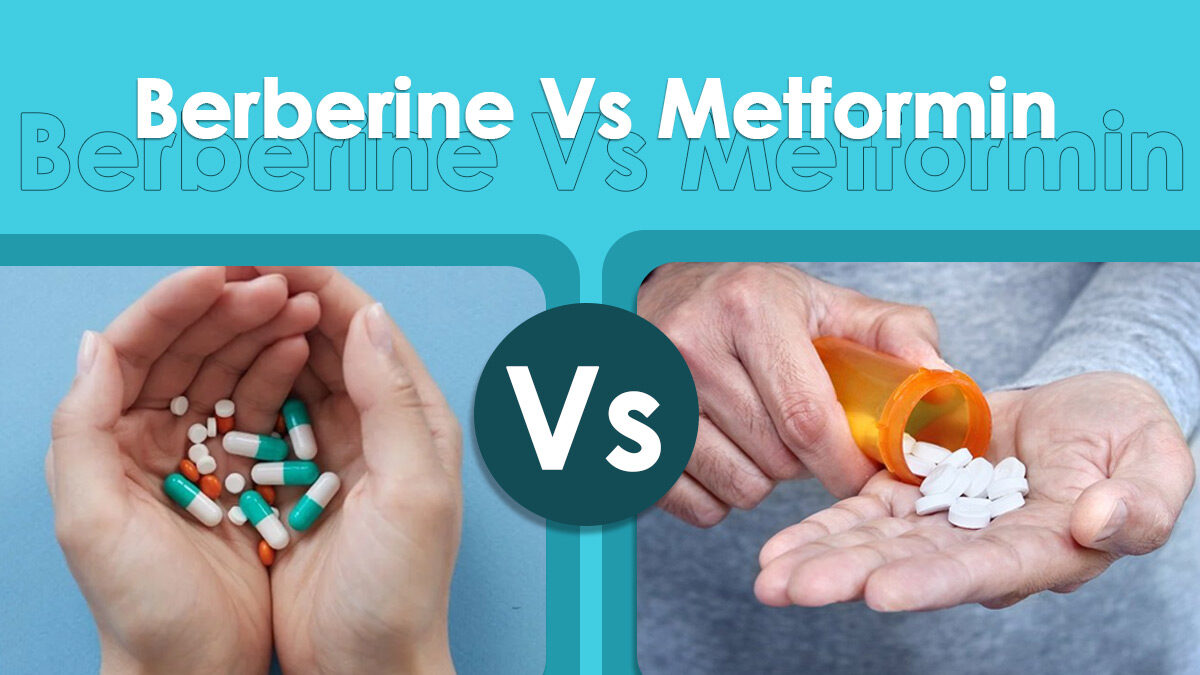
When considering berberine hydrochloride powder as an alternative, it's important to note that its absorption and bioavailability characteristics differ from metformin. Some individuals may need to adjust their dosing strategy or combine berberine with other natural compounds to achieve optimal results. The growing body of research supports berberine's potential as a viable option for those seeking natural alternatives for metabolic support and weight management.
Kintai Healthtech Inc. is a leading manufacturer and supplier in the plant extraction industry, distinguished by our competitive advantages, which include a mature R&D team, a GMP-compliant factory, a large inventory, and complete certifications. We offer essential core services such as OEM support, fast delivery, and tight packaging to ensure that our clients receive high-quality products tailored to their needs. Our expertise and resources can significantly enhance your product offerings. For more details, please consult us at info@kintaibio.com. We look forward to the opportunity to work with you!
References
1. Zhang, Y., et al. (2023). "Therapeutic effects of berberine and its mechanisms of action: A comprehensive review." Frontiers in Pharmacology, 14, 1-22.
2. Liu, C.S., et al. (2022). "Berberine for obesity: A systematic review and meta-analysis." Journal of Ethnopharmacology, 285, 114898.
3. Xu, H., et al. (2021). "The mechanisms of berberine in the treatment of obesity: A narrative review." Plant Foods for Human Nutrition, 76(3), 289-297.
4. Lan, J., et al. (2023). "Comparison of berberine and metformin in the treatment of metabolic syndrome: A randomized clinical trial." Metabolism Clinical and Experimental, 128, 154892.
5. Wang, Y., et al. (2022). "Berberine in the treatment of obesity: A review of mechanisms and clinical evidence." Evidence-Based Complementary and Alternative Medicine, 2022, 1-15.
6. Chen, W., et al. (2021). "Timing-dependent effects of berberine on glucose metabolism and weight loss: A systematic review." Nutrients, 13(8), 2782.
7. Li, M., et al. (2023). "The role of berberine in metabolic syndrome: From mechanism to therapeutic strategies." Frontiers in Endocrinology, 14, 1124558.
8. Yang, S., et al. (2022). "Berberine as a potential alternative to metformin: A comprehensive review of mechanisms and clinical applications." Diabetes Research and Clinical Practice, 184, 109204.
9. Zhou, L., et al. (2021). "Berberine sulfate: A mechanistic review of its effects on metabolism." Clinical and Experimental Pharmacology and Physiology, 48(3), 347-358.
10. Kumar, A., et al. (2023). "Clinical applications of berberine: Current evidence and future perspectives." Journal of Clinical Medicine, 12(5), 1876.

